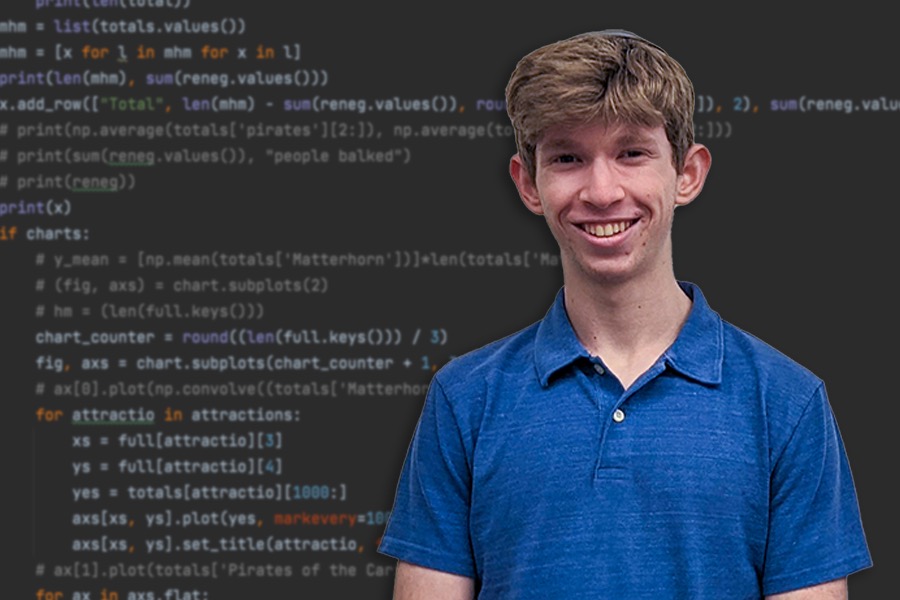OPINION: Whoever you are, Shalhevet’s Comp. Sci. classes are for you
BP Photo Illustration by Eli Weiss, BP Photo by Evan Beller
Senior Josh Weissman says everyone should take computer science.
June 13, 2022
Though history buffs and playwrights often overlook classes in computer science, every Shalhevet student would benefit from a year of learning computer science with Dr. Sharfman.
Computer Science, for 11th- and 12th-graders, and Computer Organization, for second-year computer science students, are the two computer science classes offered by Shalhevet. Though they may seem irrelevant to many students, these classes actually offer significant value to everybody for several reasons.
Nowadays, it seems that nearly everything can be done by computers. Archeologists, for example, use artificial intelligence to construct 3D models of ruins based off the remaining pieces. Doctors can use computers to search for new cures to diseases by programming them to search through different drugs. And physicists can save themselves years of theoretical math by running complex computer simulations.
Nearly every job can be done more efficiently with the use of computer science. But how will taking an entry-level computer science class help students to apply computer science to their passions? Capstone projects. In both of Dr. Sharfman’s classes, he institutes a large, semester-long project for which students get to choose what to work on. Students usually try to connect this project to a hobby or passion they already have.
Last year in 11th grade, Adina Kurzban modeled her capstone project off a scene from one of her favorite movies, Clueless, where the main character uses an iPad to scroll through clothing items to choose her outfit for the day. Adina created a robot to scour the internet for different clothing items based on what the user wanted. This year Adina is continuing the project by using the computer to digitally store the user’s clothing items, so they can scroll through themselves and pick out an outfit to wear.
Zhak Goldemberg’s 12th-grade capstone project combines computer science with psychology, one of his other passions. Zhak is designing a computer intake to acquire information from a user and give him or her psychological advice or motivation depending on how they answer the questions. Jack Sanders’ 11th-grade capstone project last year used his interest in philosophy: Jack wrote a program to compare users to famous philosophers depending on their viewpoints on various philosophical questions.
Trying to accomplish complex tasks in computer science will teach students many skills. They will learn to be efficient in solving problems and completing tasks. They will learn to be organized in their work. They will learn to compare and choose between different feasible methods to solve a given problem. They will learn to apply familiar skills they learned in unfamiliar ways. They will learn to go back to square one when a certain method isn’t working. The list goes on.
With Dr. Sharfman’s help applying computer science concepts to their own passions, students can connect to the class, whatever their interests. Even the humanities enthusiasts who have never touched a computer would acquire many valuable lessons. It is clear that computer science would benefit every kind of student – which is why everybody should take Dr. Sharfmans class.

















